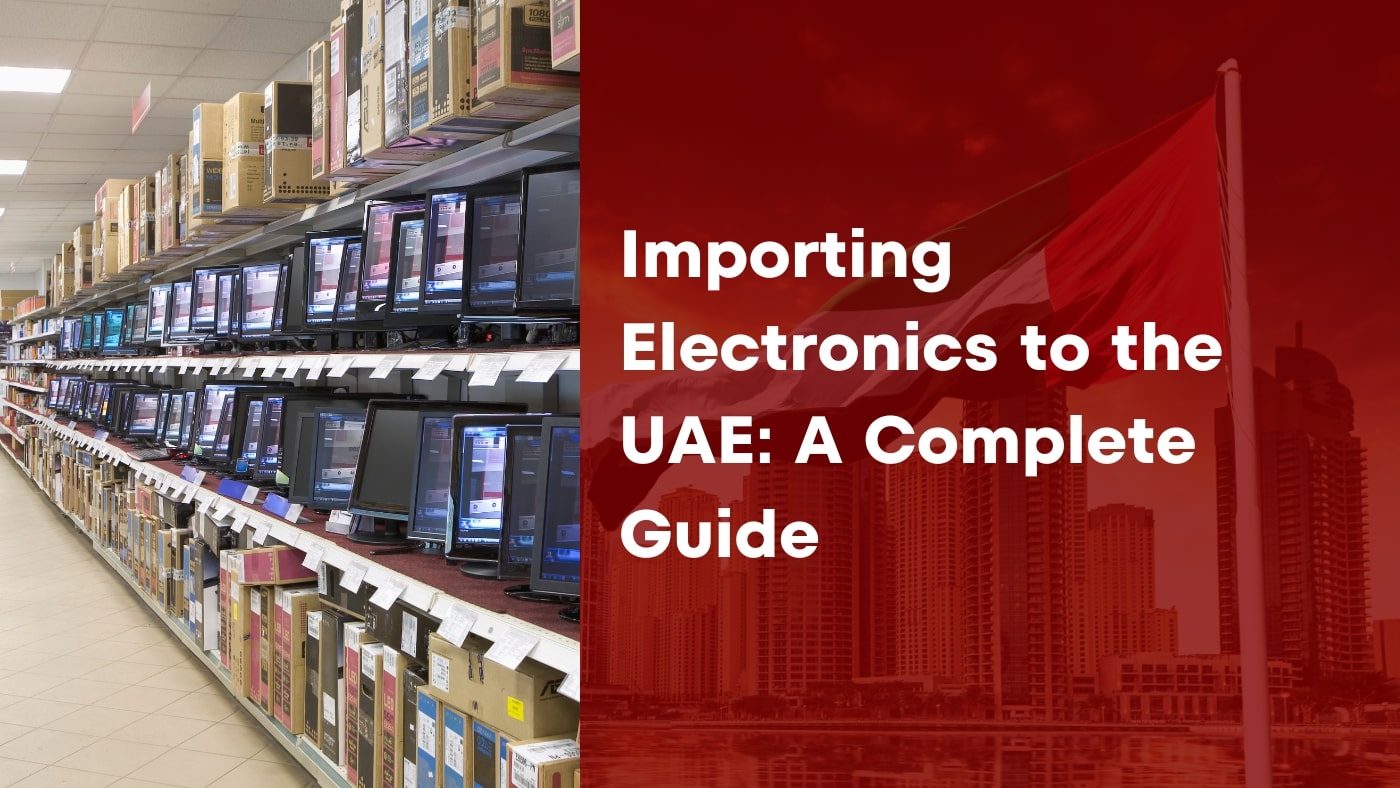The UAE has a tech-savvy population with high purchasing power. However, importing electronic goods into the UAE involves strict customs regulations, mandatory product registrations, and a complex documentation process.
To succeed in this market, it is essential to thoroughly understand the importing process and compliance requirements. We will cover everything you need to know, from understanding the import market and regulations to transportation logistics and business setup in Dubai.
The UAE Electronics Market: Opportunities and Challenges
As mentioned in the introduction, there are strict regulations that require careful planning, but there are many benefits. The UAE has a population inclined to purchase the latest electronic gadgets and a high demand for electronic goods, from smartphones to smart home devices. Additionally, there are tax benefits if you import through free zones of Dubai.
A 5% customs duty generally applies to all electronic items, with higher rates on luxury items. Your products must also comply with the Emirates Conformity Assessment Scheme (ECAS) for safety and environmental standards.
Essential Documentation for Importing Electronics to the UAE
To import electronic goods into the UAE, you will need the following documents:
- Bill of Lading: Acknowledgment receipt of the cargo, serving as a contract between the shipper and carrier.
- Shipper: Huawei Technologies Co., Ltd. (based in China)
- Carrier: Maersk (global shipping company)
- Carriage: A container filled with Huawei smartphones
- Commercial Invoice: An invoice detailing the transaction between the buyer and seller, including product descriptions, quantities, prices, and payment terms.
- Packing List: A comprehensive list detailing the origin of the product, customs duties and trade agreements, import permit, packing details, item description, and quantities.
- Certificate of Origin: Certifies the origin of the product.
- Import Permit: Required for restricted or duty-exempt goods.
Navigating Customs Clearance in the UAE
Dubai Customs is the governing body that oversees all products and electronic goods imported into the UAE. It ensures compliance with the GCC Common Customs Law.
Shipping and Logistics: Getting Your Products to the UAE
You can choose between air, sea, and land transportation depending on the urgency, cost, and nature of your electronic goods. Air freight is faster but more expensive, while sea freight is cost-effective for bulk shipments but slower.
Engaging with reputable freight forwarders can simplify the import process. They assist with documentation, customs clearance, shipment tracking, and coordination of logistics.
Advantages of Importing Electronics to UAE Free Zones
The UAE’s free zones offer significant advantages for importers, including:
- Customs Duty Exemptions: Goods imported into free zones are exempt from customs duties.
- Efficient Logistics: Free zones provide advanced logistics facilities and streamlined import-export processes.
- Strategic Location: Free zones are strategically located near major ports and airports, facilitating efficient distribution.
Ensuring Compliance and Quality for UAE Imports
Make sure imported goods comply with UAE regulations, such as safety standards and labeling requirements. Products must be labeled in Arabic or in the original language along with Arabic translations.
Regarding Quality Control, products must meet international standards. This includes obtaining necessary certifications and lab tests.
Choose Cleritbiz for Your Electronic Import Business in the UAE
Importing electronics goods into the UAE though challenging has numerous benefits from many free zones to many available consumers. Investing in this opportunity would not go to waste as chances of having a stable business will persist since technology is the future.
To get established information on setting up your importing electronics business in the UAE, get a free consultation at Cleritbiz.

